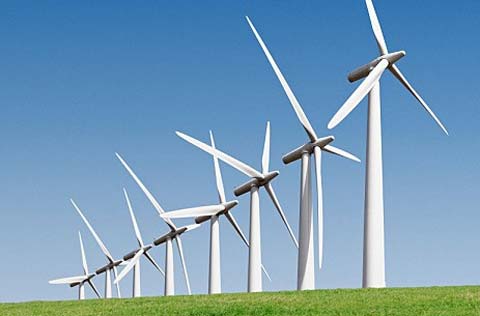Wednesday, 04/03/2026 | 00:20 GMT+7
Deputy Prime Minister Hoang Trung Hai assigned the Government Affairs Office and Ministry of Industry and Trade the task to develop a study scheme, and submit it to the Government for issuance of a Strategy for development of renewable energy in Vietnam toward 2030 and vision to 2050.
The goal of this strategic scheme, in the viewpoint of the Deputy Prime Minister, is to confirm the favorable policy, to create the policy for development of renewable energy, to promote energy conservation and pollution reduction, to mitigate the climate change, and to better meet the demands of socio-economic development and sustainable development.
Deputy Prime Minister Hoang Trung Hai instructed that in the completion of the study report and the contents of the strategy, the drafting institutions should make comparison with the oriented development of renewable energy in the world, the new technology issues relating to investment capacity. Thus, feasible and viable targets could be set up, to promote the awareness, attention and investment into this potential energy sector.

Together with the assignment, the important issue is to develop policy orientation, clearly pointing out the priorities in the formation and development of its market, in the planning and development plans for renewable energy, the policies in supportive prices and investment guarantees, incentives and financial supports for those projects.
According to the previous studies and assessments, the renewable energy sources with the greatest resource and development potential in Vietnam are hydropower, wind power, solar and geothermal power.
The total technical potential of hydropower is roughly 120 billion kWh, with a corresponding capacity of approximately 25,000-30,000 MW; potential biomass (agricultural waste, livestock discharges) accounts for about 58 million TOE ; Wind power could grow to 20,000-40,000 MW; solar energy in most of the territory with 2,000 hours of sunshine per year, could reach 1,200 Mcal/m2.
Currently, the total renewable energy sources in Vietnam reach about 15.6 million TOE, accounting for 25% of total primary energy consumption. It is mainly from hydropower, with 16% of total primary energy demand.
The development and use of renewable energy sources, the less dependence on fossil energy sources is a clear trend in the world. In Vietnam, the policy of the Government was confirmed a long time ago, and the establishment of mechanisms and policies to serve the renewable energy market is accelerated with good progress.
Trong Tan







